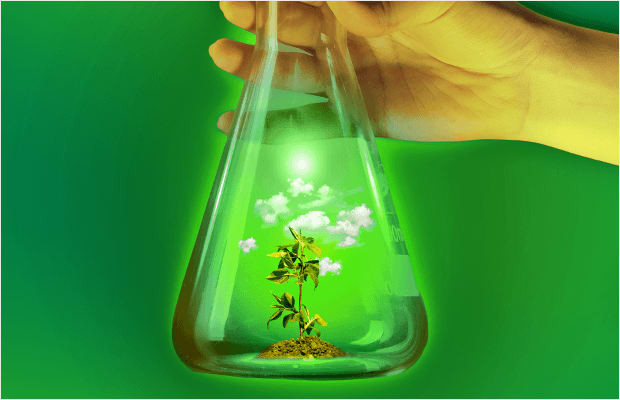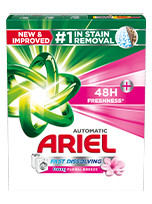Environmental sustainability is important for everyone and P&G takes it very seriously. We have a series of long term sustainability goals aimed at making all products and packaging from 100% renewable or recycled materials.

Of course, this is a challenging field, which is why P&G have introduced a number of innovations in recent years. One of the latest innovations is the use of agricultural waste renewable biomass in our washing detergent, which is an industry first.
In order to understand what this means, though, you need to understand what a renewable material is.
P&G aims for sustainable Ariel materials
Put simply, a renewable material is any material produced by natural processes at a rate comparable to its rate of consumption. Yet there is more to it than that. P&G aims to use sustainably-sourced renewable materials, which are also determined by their total environmental cost.
Materials made out of biomass, such as cellulose, and converted into ingredients, generally qualify for this criteria.
Renewable materials used everyday
One good example of this is the use of cellulosic ethanol in Ariel detergent. This material will be produced at DuPont’s new biorefinery in Nevada. This will be the world’s largest bioethanol refinery, producing 30 million gallons of cellulosic ethanol a year with zero net carbon emissions.
These sustainability innovations are all made with a focus on performance. Ariel is getting better every year. Our latest innovations gives you the best clean yet, using less detergent thanks to innovative Ariel compaction. There’s more, too.
A sustainable future
Ariel Cold Water ‘powered by nature’ will reuse more than 7,000 tons of agricultural waste every year. That’s equivalent to the power needed to do the monthly washing of a little county. We are determined to make our products and Ariel washing better to make it easier for you to make the small changes needed to care for the environment.
Our vision is to use 100% renewable or recycled materials for all products and packaging. We acknowledge this may take a while, though, so by 2020, we aim to have replaced 25% of our petroleum based raw materials with renewable ones, sustainably sourced.
Related articles
How to wash colour garments
Colourful garments are not only special because they are our favourites, saying everything about us by reflecting our mood and our personality. Colourful garments are special because they need special treatment. They can fade and lose colour quicker than light and dark clothes.
How to keep your white clothing white
Whites have many faces – delicate, regular and special whites, but they have one thing in common: they all need to look outstanding bright in order to impress.
How to understand fabric care labels
At first they may appear confusing, but with a little help from Ariel, reading the washing instructions will be just as easy as ABC.



